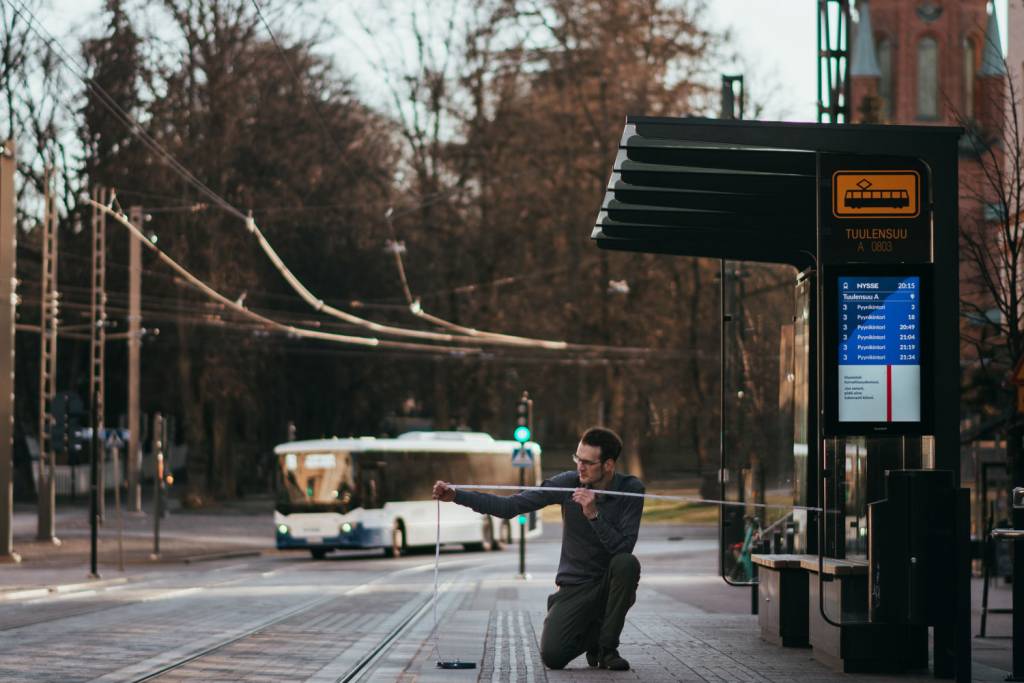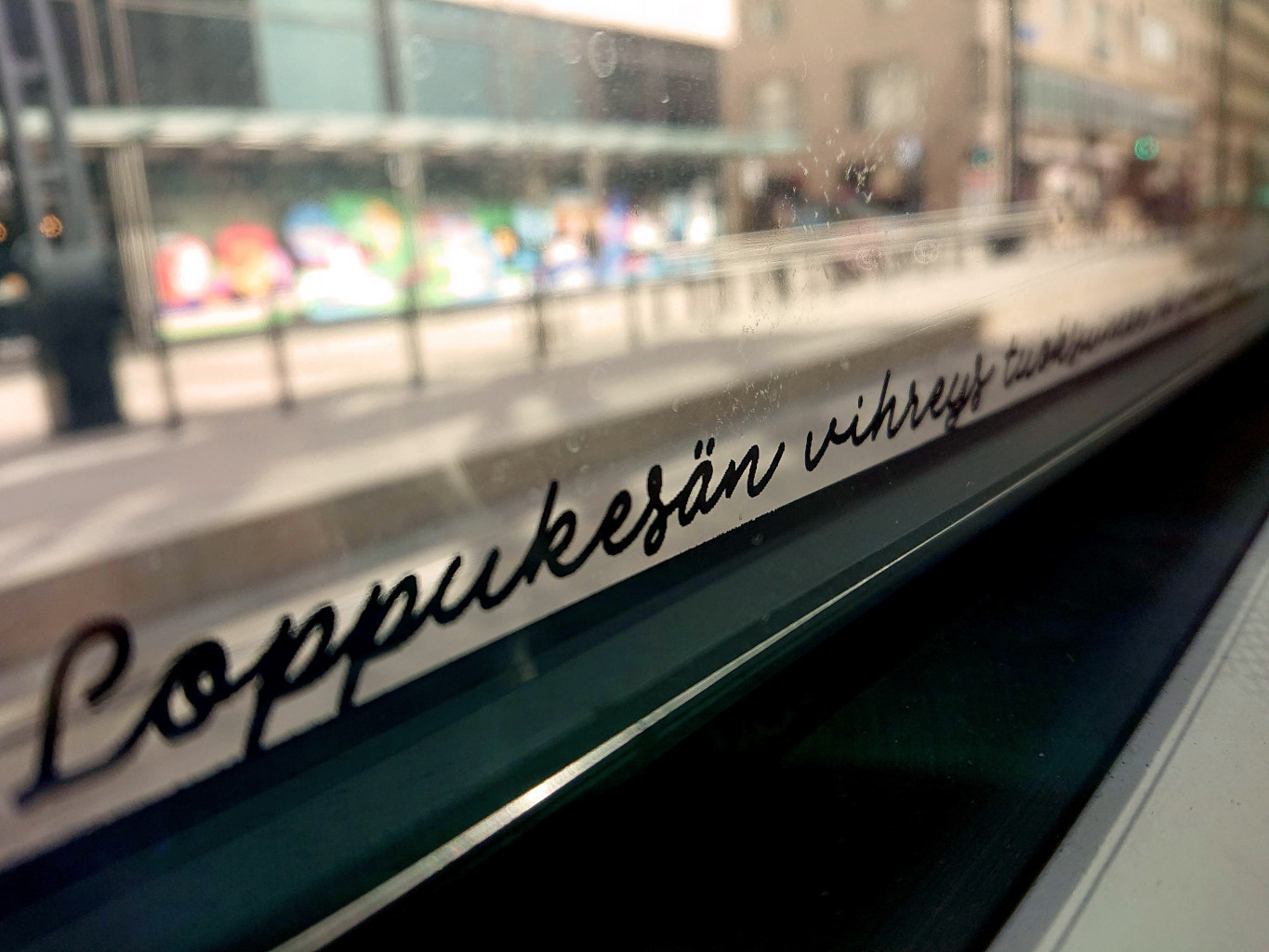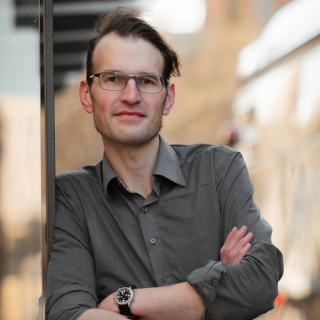If you ride the Tampere tramway and let your eyes wander, you may discover a peculiarity: The streetcar’s window frames are lined with poems. This and other features reveal that the tramway system, which has only been in service for a year, was designed with attention to detail.
For all my enthusiasm for the aesthetics, however, my professional focus is less on the vehicles than on the fare. For six weeks, I’ve swapped my office at Hamburg University of Technology for a desk at the Transport Research Centre Verne. Together with my Tampere University colleague and a TUHH master’s student, I am investigating “fare accessibility” in the Helsinki region. Our main questions are: How many destinations can I reach with a short-haul ticket and how does this specifically affect low-income people, who rely on single tickets particularly often? To answer these questions, I am working on a database that lists the fare from each stop to every other stop. I also measure the catchment areas of the stops and compare, for example, the number of daycare centers that can be reached with a short trip. In individual cases, this is trivial: For example, from TUHH campus, I can take the bus to eight stops and reach 14 daycare centers on foot from there. With many thousand stops, the situation quickly becomes confusing – which is why I traded the tape measure for a server at the TU Hamburg long ago, where I maintain the fare database. Find an auto-translated version of my methodology here.
How far will a short-distance ticket get me?
For my dissertation, I have been calculating fare accessibility for the metropolitan areas of Hamburg and Berlin-Brandenburg. The trip to Tampere is a welcome opportunity to apply my methodology to a new terrain, Especially since Finland is considered a role model of transport policy: Since the 1970s, Helsinki has constantly improved traffic safety by reducing speed. Recently, the capital declared a public transport system as a goal, the quality of which would make private cars obsolete. The consistent expansion of local public transport in alignment with comprehensive restrictions on car traffic is close to non-existent in larger German cities. The public transport system of Helsinki (HSL) also differs from the two largest German networks in terms of fares. There is no short haul, but a single ticket is valid for 80 minutes and may also be used for the return trip. For passengers – whether on a low income or not – this means that the fare offers different incentives for everyday travel compared to the Hamburg fare.

A monthly flat fare, like the 9-Euro ticket that was offered in summer 2022 in Germany, could have a lasting effect on poor residents. As low-income interviewees have told us, Hamburg’s current fare leaves them confused, as it relies on ring and zone rules that are intertwined. Some of the interviewees ‘chunk’ their way through the month with one-way tickets because it is cheaper and more financially predictable for them than subscribing to a monthly fare. The 9-euro ticket, according to income-poor interviewees, gives them an unusual freedom of movement in an impressively simple form.
European research funding by ECIU
My research trip was funded by the European Consortium of Innovative Universities (ECIU). Tampere University, like TUHH, is a member of the consortium and participates in the mobility fund for mid-level researchers. It took very little to apply for a grant, although I have to – or am allowed to – organize the trip all by myself. The purpose of the ECIU grant, a scientific exchange, can be interpreted quite freely, which means that it offers huge opportunities for professional and personal development – which, on this trip, takes place not only in the lecture hall, but also on the one or other tramway ride.
This travel diary is also available in German.
ECIU Mobility Fund
The ECIU supports scientific staff who wish to visit European partner universities. To apply, all you need is a letter of motivation, a cost estimate, and a letter of acceptance by one of the 13 ECIU partners.
The contact person at Tampere University is Mira Kauppinen.
The contact person at TUHH is Krista Schölzig.
Photos by Christoph Aberle & Carolin Büttner


